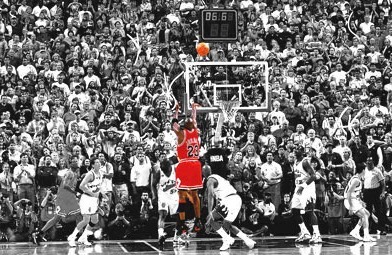
There’s a growing ‘Self-Esteem’ movement in parenting circles. Advocates are pushing the idea that constant praise and minimal exposure to struggle are the keys to raising happy, productive children. We can thank them for the elimination of games of Tag in school playgrounds and youth sports leagues that forbid score-keeping.
I’m not a parent, but I’m willing to throw some unorthodoxy into a charged discussion.
Your self-esteem is like a bank—the more accomplishments you fill it with, the more you’ll have to withdraw from your memory at a later date. The more positive experiences you can withdraw from the bank, the easier it is to remain confident in the face of uncertainty. Regular, controlled exposure to hardship is the path to improvement. New, difficult experiences encourage growth.
In this way, mental tenacity is not unlike acquiring physical strength; the gains come from the struggle.
When you take constructive action in the face of fear, you reinforce the “act, don’t cower” mentality. Each time you engage the anxiety and fear, you facilitate bold action in the future.

It’s easy to act like you’ve been there before when you’ve already been there.
Preventing your kid from playing games that have a natural element of adversity robs them of a chance to learn how the real world works as well as the satisfaction that comes from a job well done.
A child that’s been coddled throughout childhood is liable to fall apart when the going gets rough. It’s like throwing a novice swimmer into deep water without preparation.

Oops.
There’s nothing wrong with regular vocal encouragement; affirmations and visualization exercises have real benefits. It’s the refusal to permit discomfort paired with effusive praise that creates a problem. A child exposed to excess, unearned flattery may be less motivated to tackle difficult problems—the type that spur emotional and intellectual growth. They will approach any potential challenge reluctantly (if at all). Why risk hearing they may not be as “great” or “super-intelligent” as you think they are by taking on a tougher task? Challenge aversion is a natural mechanism for shielding one’s self-esteem.
Kids need to be exposed to challenges with a real possibility of failure. They learn that failure is an opportunity to identify areas for improvement instead of a permanent blight on their identity. We realize the need for self-improvement through our struggles to get what we want; that lesson eludes those who never emerge from their idealistic bubbles..
An inflated sense of self begets anti-social behavior and may even lead to a rise in criminal behavior. When faced with new difficulty, these folks may lash out at the people around them instead of attacking the root of the problem. They lack empathy and other skills necessary for productive interactions with others. It’s one reason why you occasionally see the rich or privileged stealing from their environment, despite their own fiscal solvency. It’s a sense of entitlement fostered by years of hearing they’re better than the people around them and are above the rules.
It’s easy to blame the kids for these problems (and really, they deserve the bulk of the blame—accountability should be imparted at an early age). The adults in their lives (parents, relatives, teachers etc.) bear some responsibility as well. By not instituting reality checks, they do the kids a disservice. Lack of discipline, favoritism, and other measures that place short-term expediency ahead of long-term craftsmanship sell the kid short, even when the parent is well-intentioned,
And we know the dangers of letting good intentions trump results.
When faced with the merits of competition and adversity, some might counter that winning a plastic trophy is not important. “Too much competition can hurt a kid’s feelings”, “winning isn’t everything”, and “its what’s inside that counts”..
To that, I’d say:
“What’s inside is important because of what it makes you do”.
It’s the process, not the physical trophies, that is essential. The actual journey is what builds the resolve and skills that morph children into productive adults.
In this world, it’s not enough to believe you are nice, pleasant, or friendly. How is this attribute reflected in your impact on the world around you? Why should you get to demand things from other people just because you are ‘nice’? What skills and value are you bringing to the table that command the value you are looking for?
A tree is known by its fruits..
You can’t scrub a kid’s world free of the challenges and struggles inherent in a well-traveled childhood and then expect him to transition seamlessly into adulthood. You’ve sucked the excitement and authenticity from the experience and the life lessons that come with it.
It’s like playing a game of poker without real money on the line; a poor imitation of the real thing.
Do your kids a favor—challenge them. Critical thinking ability is best developed through exposure to the uncertain. Offer encouragement and structure to guide the way, but enough flexibility to learn how to solve problems for themselves. Let them learn what life in the real world is like.
